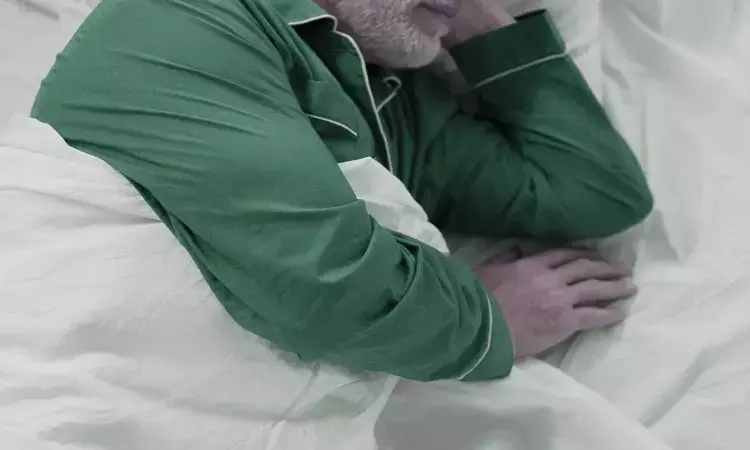- Home
- Medical news & Guidelines
- Anesthesiology
- Cardiology and CTVS
- Critical Care
- Dentistry
- Dermatology
- Diabetes and Endocrinology
- ENT
- Gastroenterology
- Medicine
- Nephrology
- Neurology
- Obstretics-Gynaecology
- Oncology
- Ophthalmology
- Orthopaedics
- Pediatrics-Neonatology
- Psychiatry
- Pulmonology
- Radiology
- Surgery
- Urology
- Laboratory Medicine
- Diet
- Nursing
- Paramedical
- Physiotherapy
- Health news
- Fact Check
- Bone Health Fact Check
- Brain Health Fact Check
- Cancer Related Fact Check
- Child Care Fact Check
- Dental and oral health fact check
- Diabetes and metabolic health fact check
- Diet and Nutrition Fact Check
- Eye and ENT Care Fact Check
- Fitness fact check
- Gut health fact check
- Heart health fact check
- Kidney health fact check
- Medical education fact check
- Men's health fact check
- Respiratory fact check
- Skin and hair care fact check
- Vaccine and Immunization fact check
- Women's health fact check
- AYUSH
- State News
- Andaman and Nicobar Islands
- Andhra Pradesh
- Arunachal Pradesh
- Assam
- Bihar
- Chandigarh
- Chattisgarh
- Dadra and Nagar Haveli
- Daman and Diu
- Delhi
- Goa
- Gujarat
- Haryana
- Himachal Pradesh
- Jammu & Kashmir
- Jharkhand
- Karnataka
- Kerala
- Ladakh
- Lakshadweep
- Madhya Pradesh
- Maharashtra
- Manipur
- Meghalaya
- Mizoram
- Nagaland
- Odisha
- Puducherry
- Punjab
- Rajasthan
- Sikkim
- Tamil Nadu
- Telangana
- Tripura
- Uttar Pradesh
- Uttrakhand
- West Bengal
- Medical Education
- Industry
Inadequate sleep for 5 days may affect emotional reactions

In a recent Journal of Sleep Research study, participants perceived pleasant and neutral pictures in a more negative way when their sleep was restricted for several nights in a row.
An inadequate amount of sleep can negatively affect emotional processing, causing behavioural and neurofunctional changes. However, unlike the condition of total sleep deprivation, which has been extensively studied, the effects of prolonged sleep restriction have received less attention.
In the study, participants were tested the morning after 5 nights of regular sleep and after 5 consecutive nights of sleep restriction (5 hours a night).
"Insufficient sleep may impose a negative emotional bias, leading to an increased tendency to evaluate emotional stimuli as negative," said lead author Daniela Tempesta, PhD, of the University of L'Aquila, in Italy. She noted that the findings are especially pertinent because chronic sleep restriction is a common and underestimated health problem in the general population. "Considering the pervasiveness of insufficient sleep in modern society, our results have potential implications for daily life, as well as in clinical settings."
These results provide the first evidence that an inadequate amount of sleep for five consecutive nights determines an alteration of the evaluation of pleasant and neutral stimuli, imposing a negative emotional bias.
For more details click on the link: http://dx.doi.org/10.1111/jsr.13022
Hina Zahid Joined Medical Dialogue in 2017 with a passion to work as a Reporter. She coordinates with various national and international journals and association and covers all the stories related to Medical guidelines, Medical Journals, rare medical surgeries as well as all the updates in the medical field. Email: editorial@medicaldialogues.in. Contact no. 011-43720751
Dr Kamal Kant Kohli-MBBS, DTCD- a chest specialist with more than 30 years of practice and a flair for writing clinical articles, Dr Kamal Kant Kohli joined Medical Dialogues as a Chief Editor of Medical News. Besides writing articles, as an editor, he proofreads and verifies all the medical content published on Medical Dialogues including those coming from journals, studies,medical conferences,guidelines etc. Email: drkohli@medicaldialogues.in. Contact no. 011-43720751


